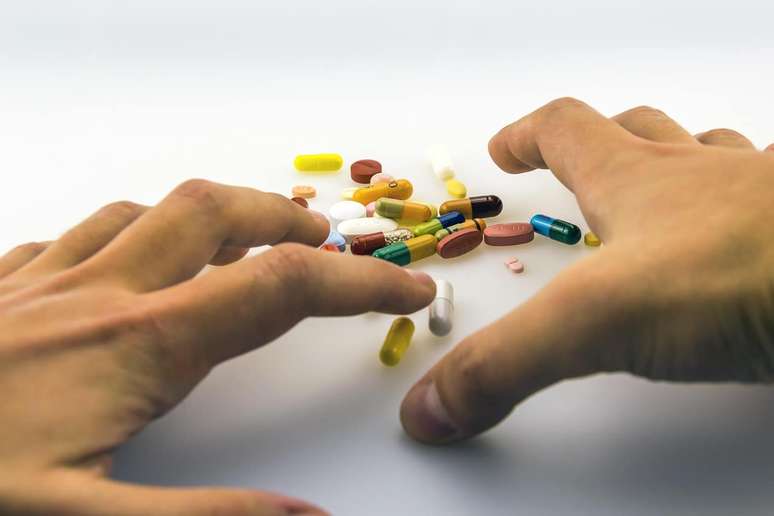The progress of chemical dependence exposes challenges to the public health system and the social confrontation of the problem
Summary
More than 3.5 million Brazilians face drug addiction, in particular alcoholic dependence, which affects 11.7 million; The problem presses the health system and requires solid public policies and wide access to specialized treatments.
According to data from the Oswaldo Cruz (Fiocruz) Foundation, over 3.5 million Brazilians are considered drug addicts. When attention is paid to the consumption of alcohol, the numbers are even more expressive: according to the National Survey of Alcohol and Drugs (Lenad), of the Federal University of San Paolo (UNIFESP), about 11.7 million Brazilians live with alcoholic dependence.
The progress of these indices represents not only a challenge for families, but also the public health system. With the continuous increase in the number of dependent people, the country has to face a scenario of growing concern in the field of public health.
The World Health Organization (WHO) recognizes chemical dependence as a chronic disease that requires continuous and adequate treatment. Recommended therapeutic approaches include detoxification, individual and group therapies and rehabilitation programs in specialized institutions.
Factors that guide the increase in cases
Among the causes that contribute to the increase in chemical dependence in Brazil, greater access to illicit substances such as marijuana, crack and cocaine is distinguished. Over the years, the ease of access to these drugs has been underlined as a relevant factor in the growth of the number of users.
Even social aspects, such as unemployment, the vulnerability of young people, the absence of family support and social pressure, play an important role. For many, the use of substances emerges as an attempt to escape these difficulties.
According to Gil Duque, owner of A Rehabilitation clinic mgwhich, on average, performs 80 monthly visits, “the main problems between patients were the lack of family support and friends, who often abandon them when they realize the addiction”. Gil also warns: “Without solid public policies for prevention and control, the scenario tends to worsen, with more people vulnerable to the use of substances and greater pressure on the health system”.
The Covid-19 pandemic has further aggravated this scenario. Social isolation, economic instability and the increase in mental disorders have contributed to the growth of the number of people charged. In 2021, a study by the National Confederation of Municipalities indicated that the demand for chemical dependence care in the Unified Health System (Su) increased by 54%.
In addition, the absence of effective public policies, both in prevention and in the fight against drug trafficking, remains a factor that contributes directly to the expansion of the problem.
Barriers in accessing treatment
Even with greater awareness of chemical dependence as a health condition, access to treatment in Brazil still has obstacles. On several occasions, drug consumers end up being criminalized and arrested rather than referring to rehabilitation programs.
The precariousness of health infrastructures in some regions, such as rural areas and urban suburbs, further limits the treatment options. The social stigma associated with chemical dependence also prevents many people from looking for help, for fear of discrimination or refusal by the community and the family itself.
Therapeutic approaches and importance of rehabilitation
Although chemical dependence is a complex disease, adequate treatment can provide significant results. The process usually begins with detoxification, performed in a hospital environment, to remove body substances and the management of abstinence symptoms.
The next step provides psychological therapy, both individual and group, integrated by family follow-up and post-treatment financial aspect for social reintegration and the prevention of repercussions.
Rehabilitation clinics play a central role, especially in the most serious cases. In these institutions, the programs include different therapeutic ways, work seminars and psychiatric care. The hospitalization period varies according to the profile of each patient, usually between 90 and 180 days.
Although there is still a certain stigma in relation to rehabilitation clinics, health entities and organizations involved in the fight against chemical dependence recognize the importance of these spaces in the recovery process. The strengthening of public policies and the expansion of access to specialized treatments are considered essential measures to deal with the problem more effectively.
Source: Terra
Ben Stock is a lifestyle journalist and author at Gossipify. He writes about topics such as health, wellness, travel, food and home decor. He provides practical advice and inspiration to improve well-being, keeps readers up to date with latest lifestyle news and trends, known for his engaging writing style, in-depth analysis and unique perspectives.








